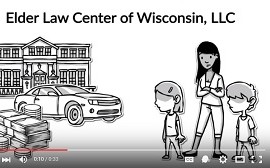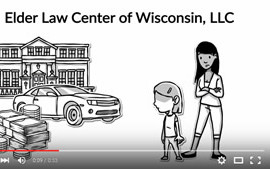FAQs Archives: "Family in Crisis"
What’s the difference between Medicare and Medicaid?
Medicare is health insurance for people over sixty-five or disabled. It pays for hospital stays, doctor visits, and medical tests. It covers only limited skilled nursing care. Medicaid is a social health care plan for people with low income and limited resources who meet certain economic criteria for eligibility – it does cover the long term costs of nursing care in a nursing home ONLY.
What is Medicaid Planning?
Medicaid Planning involves developing a plan to reallocate your assets in such a way that Medicaid will not take them into consideration when determining your eligibility for coverage. If nursing home care is needed in the future, you can qualify to have Medicaid pay for the cost of care, rather than depleting your own resources to cover these costs.
How can we find out if we’re eligible for Medicaid coverage?
Medicaid eligibility is based on the amount of your monthly income and your assets. At Elder Law Center of Wisconsin we are experts in Medicaid law and know how to ensure you qualify for coverage in the shortest time possible.
If my spouse goes into a nursing home, will I have to give away all or most of my assets to keep them from being taken to cover the costs of care?
This question goes to the heart of our Estate Planning mission. Elder Law Center of Wisconsin uses an assortment of asset protection plans (depending on your particular situation) to ensure your assets will not be taken to cover the cost of nursing home care. Our trusts permit you to maintain full control and access to your income while ensuring your assets are not counted towards your eligibility for Medicaid.
Why do I need help obtaining Medicaid coverage? Isn’t it just a matter of submitting the application?
Many people apply for coverage without any help, but Medicaid will not tell you how to protect your assets. What Elder Law Center of Wisconsin offers is its specialized knowledge, skill, and experience to help you follow all the proper application procedures, and handle all of the necessary legal correspondence. More importantly, we offer a range of options for protecting your assets, should you need nursing home care. We will see your case through to its conclusion and work hard to produce a positive outcome for you and your family.
I’ve heard Medicaid can take our house for reimbursement. Is that true?
No, they cannot take your house, nor do they want to. This is one myth regarding Medicaid. While Medicaid does require the spouses of beneficiaries to contribute some portion of their available assets to the cost of care, the federal Spousal Impoverishment Protection law excludes your family home from that calculation while a spouse resides there. There are several options available to protect your house from estate recovery if one dies while on medicaid or family care.
If my spouse goes into a nursing home, will I have to give away most or all of my assets in order to protect them from being taken to cover the cost of care?
No. This is another myth regarding Medicaid. Under federal Spousal Impoverishment Protection rules, you can receive Medicaid benefits and retain your home, your vehicle, your household effects, and “countable” assets up to a state-determined maximum. Request a free Medicaid Planning brochure.


